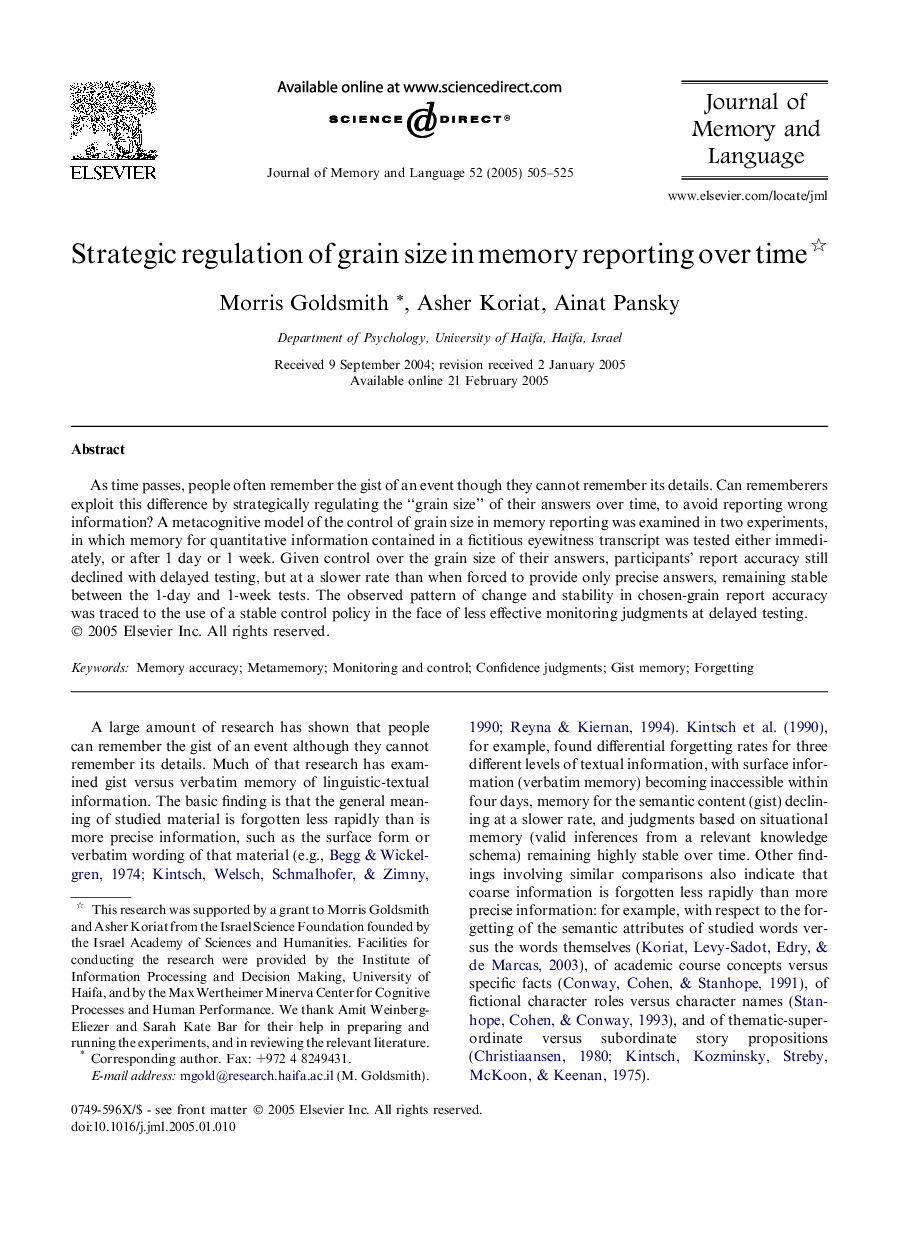| Article ID | Journal | Published Year | Pages | File Type |
|---|---|---|---|---|
| 10459869 | Journal of Memory and Language | 2005 | 21 Pages |
Abstract
As time passes, people often remember the gist of an event though they cannot remember its details. Can rememberers exploit this difference by strategically regulating the “grain size” of their answers over time, to avoid reporting wrong information? A metacognitive model of the control of grain size in memory reporting was examined in two experiments, in which memory for quantitative information contained in a fictitious eyewitness transcript was tested either immediately, or after 1 day or 1 week. Given control over the grain size of their answers, participants' report accuracy still declined with delayed testing, but at a slower rate than when forced to provide only precise answers, remaining stable between the 1-day and 1-week tests. The observed pattern of change and stability in chosen-grain report accuracy was traced to the use of a stable control policy in the face of less effective monitoring judgments at delayed testing.
Related Topics
Life Sciences
Neuroscience
Cognitive Neuroscience
Authors
Morris Goldsmith, Asher Koriat, Ainat Pansky,
